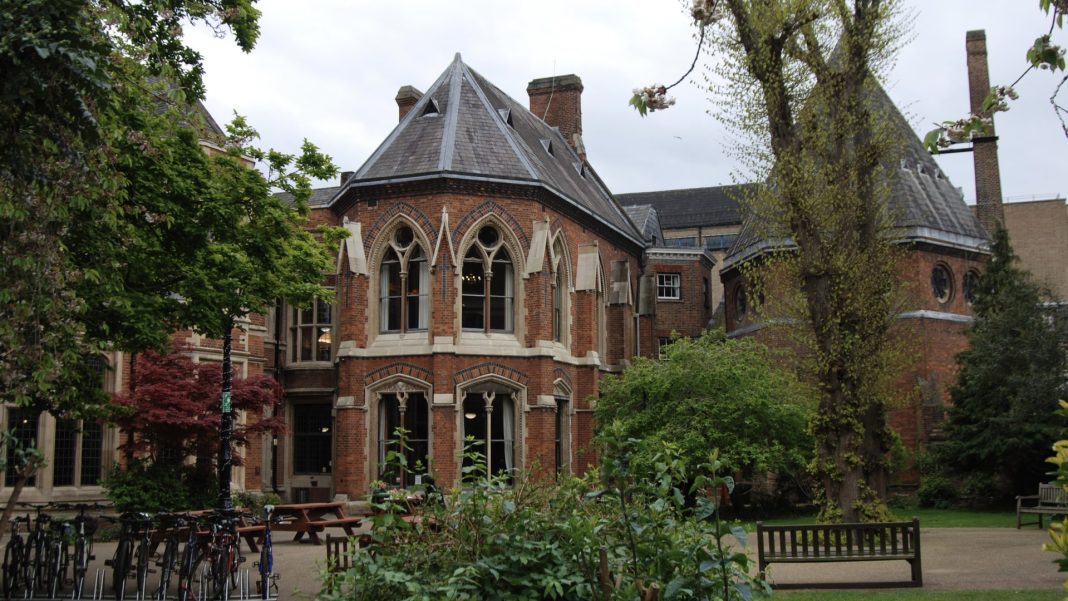Oxford has gone woke, apparently. This once-venerable institution has been dumbed down to a shadow of its former self, a place where debate is stifled, academic rigour has vanished, and diversity trumps diligence. Lee Cohen, a journalist for GB News (now Britain’s most-watched news channel) recently asserted that all this points to “a deeper malaise afflicting Britain’s elite institutions”. As current students here, we must be very frightened indeed.
Given their emphasis on Oxford’s declining intellectual credentials, the extent of the Right’s fallacy is remarkable. The erroneous inference from part (the Oxford Union, for example) to whole (the University) is glaring. Failing actual empirical research, a few controversial examples are handpicked to bolster the narrative that the oldest university in the English-speaking world has been subject to ideological capture and irreversible decline.
This is obviously false. Anyone on the ground here knows that Oxford remains a thriving community of scholars: not only the best university in the world, but 4th in the UK! The majority of Oxford students, who don’t read The Telegraph or watch GB News, are unaware their institution is supposed to have fallen into disarray. But such outlets have large followings, and despite the risk of preaching to the choir, it needs to be said: Oxford is still brilliant.
A few Oxford stories have recently exploded across national and international media. The most prominent among them concerns George Abaraonye, the Union President-Elect fighting to stay in the role following highly controversial comments about the shooting of far-right influencer Charlie Kirk. Horrible though these comments were, the media frenzy that ensued reached a whole new fever pitch precisely because it fits the narrative that Oxford has gone to the dogs. Particular attention has been paid to Abaraonye’s A-level results, with the implicit message that Equality, Diversity, and Inclusion (EDI) initiatives were somehow responsible for this mess.
The logical leap from the faults of one student to the failure of an entire recruitment strategy wouldn’t survive under the scrutiny of an Oxford tutor, but the perpetual moral outrage it engenders does help sell newspapers and drive clicks. When a privately-educated Union president makes a mistake of similarly stupid proportions in future, the press will surely jump to the conclusion that the massive overrepresentation of students from fee-paying schools is the root cause.
Other recent flashpoints include plans to use gender-inclusive Latin in graduation ceremonies, claims about non-exam assessment methods being expanded to help minorities, and “social engineering” over black students’ A-levels. All from one newspaper in particular, whose strapline is “we speak your mind”.
‘Mind’ is right, as whatever the claims, they certainly require an active imagination. Go and see students toiling away on their essays in the brand-new Schwarzman Centre to see if they’re lazy, easily offended, incapable of sitting exams, or idiots brought in to satisfy a diversity quota. It’s evident the University’s exam system is alive and kicking. As are initiatives to get more students to Oxford from deprived (and so often more ethnically diverse) areas, ensuring we get the best talent from everywhere, not just the usual private schools and premium-postcode London grammar Oxbridge factories.
As for the hysteria about ceremonial Latin: at Oxford nowadays, we tend to focus on substance over style. Most of us don’t wake up every day in consternation at the fact some words have been changed from a future graduation ceremony. We get on with the business of study, which ironically enough doesn’t hold much currency in the right-wing media attention economy.
Obviously, protests from Oxford students against Israel’s genocide in Gaza have fed the narrative too. Apparently a student body that opposes the murder of innocent civilians, as well as the destruction of universities, has profoundly lost its way. Many are also extremely uneasy with the proscription of direct action protest groups as terrorist organisations. To represent progressives’ opposition as intellectual vacuity or moral ruin is to engage in precisely the Orwellian doublespeak that the Right is obsessed with attributing to the ‘woke agenda’. It’s shameful.
All this overtly partisan talk of ‘woke’ might feel very old-fashioned and the rebuttal of the nonsense spouted about this University and its students futile. Yet the stakes are too high for us to sit back and watch our best universities slide into the same category as the BBC: institutional cornerstones sitting on the brink after decades of right-wing slings and arrows. A future Farage government will not be kind to Oxford, just as Trump has not been kind to American higher education.
What’s more, this presentation of Oxford is a major distraction from the many pressing questions the University is actually facing. The more national outlets parrot Union gossip, snap merry ballgoers, or criticise ‘woke’ window dressing policies, the less we talk about the institutional embrace of ChatGPT, the abysmal pay faced by early career academics forced to turn to food banks, or how to secure funding for the humanities. All fall by the wayside if the British popular perception of the jewel in our education crown is anchored in meaningless culture war debates.
Oxford is alive and well, whatever the media might say. Anti-intellectualism may be on the rise, but we must look through the click-bait, fear-mongering, rage-baiting mist and see the wood for the trees. Don’t change. The day this University caves to the caprices of a populist press is the day we are truly in trouble.


